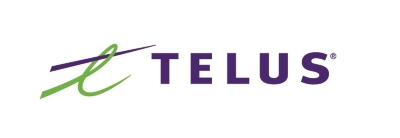UK social impact startup Waymap successfully closes funding round led by TELUS for its indoor navigation technology Français
1.3 billion people live with disabilities in the world. A £7M investment round led by the TELUS Pollinator Fund for Good enables Waymap to continue expanding internationally and investing in its leading 'sensor-fusion based' indoor localisation technology
LONDON, April 9, 2024 /CNW/ - Today, London-based tech start-up Waymap, a technology company offering an accessibility-first, highly accurate navigation app that works outdoors, indoors and even deep underground, announced the completion of a £7 million funding round. This investment, led by the TELUS Pollinator Fund for Good, will enable Waymap to continue expanding internationally, growing the presence of mapped areas in Asia Pacific and the Middle East, to complement Waymap's current presence in North America and Europe. Original investor, Venrex, also participated alongside Comprador Holdings.
In modern cities, navigation apps play a crucial role; however, they don't work for everyone. These apps also face limitations due to GPS, rendering them ineffective indoors or underground. This presents a considerable challenge for individuals with heightened navigation requirements, especially the hundreds of millions of people living with visual impairments worldwide, and the 1.3 billion people with disabilities. Higher accuracy indoor and outdoor navigation also benefits everyone, drastically improving efficiency as commuters move around the built environment.
CEO and Founder Dr. Tom Pey, who is also blind, comments, "Waymap has set itself the goal of revolutionising how everyone accesses the world. It is a global undertaking and one that requires investors, like TELUS, that not only share our vision and values, but have the strength of expertise and know-how to make this achievable. At a time of reduced inward venture capital investment in the UK, we are so proud that we have bucked the trend. This is, in no small way, down to the strength of our team, who are totally dedicated to making our towns and cities accessible for everyone."
With the investment from the TELUS Pollinator Fund, the company also plans to continue investing in its leading 'sensor-fusion based' indoor localisation technology. This technology uses nothing but the gyroscope, accelerometer, barometer and compass built into smartphones to locate users with up to 1 metre accuracy. Additionally, artificial intelligence, visual positioning and 5G edge computing present exciting new avenues for greater localisation accuracy.
"We're pleased to celebrate our first investment in the UK by leading a financial round in Waymap which underscores the strength and growth potential of the purpose-driven startup's product and its strong leadership that work tirelessly to help visually impaired people safely navigate their daily life," said Blair Miller, Managing Partner, TELUS Pollinator Fund. "By investing in Waymap, we can help them in their mission to foster greater accessibility, independent mobility and more efficient travel for everyone."
Founded in 2017 by Dr. Tom Pey, Waymap originated in response to a request from visually impaired young people at the Royal Society for Blind Children's (RSBC) Youth Forum, seeking a solution to navigate the London Underground like everyone else. Pey, who had previously carried out groundbreaking research in the field of digital navigation for blind people, took on the challenge. 'It soon became clear to me,' Pey said, 'that any solution that supported the seamless navigation for blind people, would need to be something that everyone needed.' Waymap was founded and then embarked on a mission to leverage disruptive technology and redefine how solutions required by visually impaired people could help everyone to navigate indoors in a way that truly works for them.
In other words, if it works for blind people it will work for everyone. The result of this journey is groundbreaking location technology and a navigation app, showcasing unparalleled precision. Today, Waymap's flagship project involves deploying its technology across the entire Washington D.C. area in conjunction with the local Metro.
Waymap's founder originally embarked on the journey to create Waymap when he conducted extensive research into how visually impaired people in the UK were navigating daily life. Tom aimed to unveil the authentic experiences of individuals dealing with sight loss, told in their words and expressing their real needs. His studies revealed that people with sight loss rarely ventured out alone, and if their mobility challenges were not addressed, the high levels of anxiety and depression in that community would persist. The profound impact of navigational challenges on individuals with disabilities is evident, as Guide Dogs UK estimates that approximately 35% of those diagnosed with sight loss choose not to venture out alone. Towns and cities are made up of complicated spaces. For instance, busy locations such as airports, museums and hospitals with unclear and intricate signage, contribute to a complicated and inefficient journey for everyone.
The company's mission, inspired by Tom's firsthand experience, addresses these pressing issues to foster greater accessibility, independent mobility and more efficient travel for everyone.
Waymap offers a world-leading precise navigation app which works indoors, outdoors and underground. We are a Deep-Tech company developing software set to revolutionise the way we all access the world. Independent of GPS, WiFi or Mobile Data, our accurate and reliable step-by-step navigation relies solely on a revolutionary algorithm, SmartStep, which uses only the motion sensors on a smartphone and the user's steps. Where other navigation apps on the market don't work inside and underground, or for users with complex needs or journeys, Waymap will make navigation and smart cities truly inclusive. Initially designed to enhance the lives of blind users, its utility extends to all. With accuracy up to 1 metre, our technology surpasses others, facilitating navigation around transit networks and busy shopping centres, adapting to users' habits. Additionally, our location technology offers broader applications: its probability-based location finding will have use across all areas of smart city living, and for any company or individual looking to accurately pinpoint precise location.
For media inquiries, please contact:
Eva Hudson [[email protected]]
SOURCE TELUS Communications Inc.


Share this article